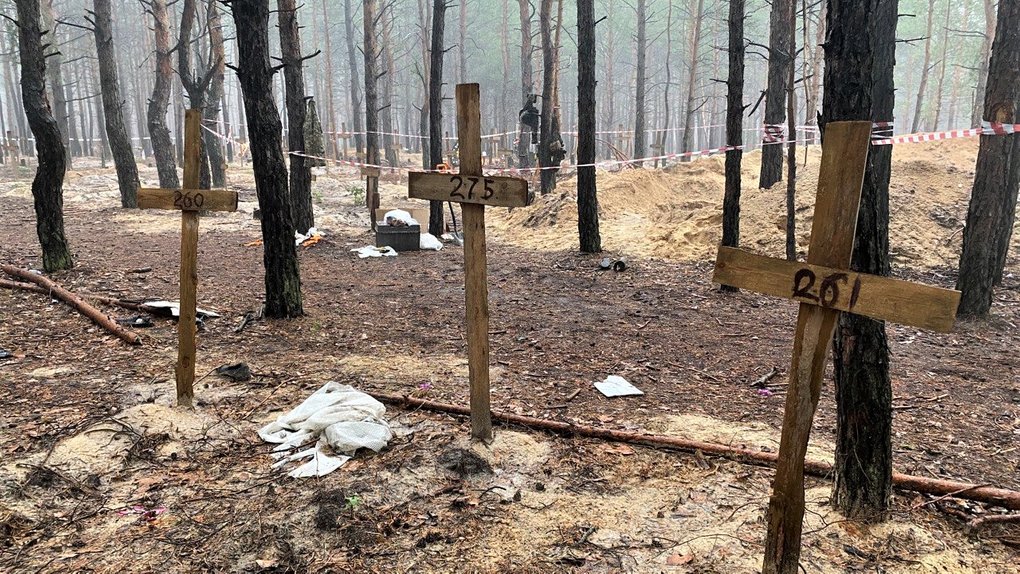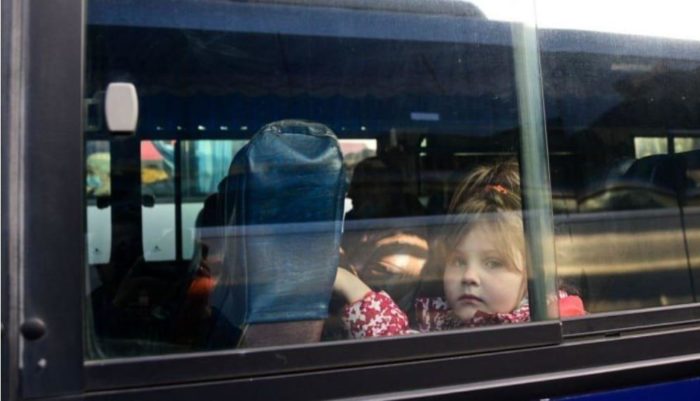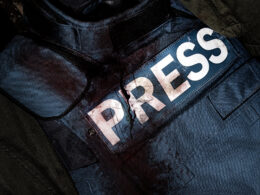In March 2022, following Russia’s full-scale invasion, the president of the United Nations Human Rights Council (UNHRC), Federico Villegas Beltrán, announced the establishment of the Independent International Commission of Inquiry on Ukraine. This commission will investigate all alleged violations and abuses of human rights and international humanitarian law (IHL) during the Russian war against Ukraine.
Almost a year after the beginning of the armed aggression, the organization, which collects evidence of war crimes by interviewing victims and analyzing forensic material, released a report stating that Russia had committed a wide range of war crimes in Ukraine.
“The Commission’s evidence shows that in areas that came under their control, Russian authorities have committed wilful killings of civilians or persons not involved in fighting (hors de combat), which are war crimes and violations of the right to life,” states the UN Commission of Inquiry on Ukraine.
Erik Møse, who was a judge at the International Criminal Tribunal for Rwanda (ICTR) and current Chair of the Commission of Inquiry, has stated that investigators had compiled a list of individuals to be held accountable for war crimes in Ukraine.
Ukrainian civilians and POWs underwent “denazification sessions” and beatings during Russian captivity
The Commission has found numerous cases of inhuman treatment by Russian occupation authorities in Chernihiv, Donetsk, Kharkiv, Kherson, Kyiv, Sumy, and Zaporizhzhia oblasts.
According to the report, detained by the Russian invaders, civilians and POWs were subjected to so-called “denazification sessions” and “calls to Putin,” during which they were repeatedly beaten and electrocuted with a military phone.
As per the Commission, torture was particularly severe against current or former members of the Ukrainian armed forces, their relatives, local officials, law enforcement personnel, employees of Zaporizhzhia Nuclear Power Plant (ZNPP), and pro-Ukrainian civilians.
During lengthy interrogations in detention centers, Russian soldiers tied their victim’s hands and legs and blindfolded them with hoodies or tape. Survivors of torture chambers recalled that the Russian invaders referred to them as “nazis,” “fascists,” and “terrorists.” In the initial weeks of the war, the Russian military resorted to brutal tactics against Ukrainian civilians, including beatings with rifle butts or batons, sexual assault, and deliberate executions.
As per the Commission report, in areas under prolonged Russian control and in more permanent detention facilities, additional torture methods were used.
According to the report, “One such method was electrocution with a military phone called ‘Tapik’ connected to an electricity cable with clips applied on feet, fingers, or men’s genitals. The perpetrators called this a “call to Lenin” or a “call to Putin.
Other methods included hanging detainees to the ceiling with hands tied, called “parrot position,” strangling with cables, suffocating with plastic bags or gas masks, rape, and other sexual violence,” reads the report.
Human rights investigators revealed the case of a former Russian prisoner who was beaten as a “punishment for speaking Ukrainian” and for “failing to recall the lyrics of the anthem of Russia.” According to a female survivor, she passed out a few times from beatings, but the perpetrators woke her up to continue the assault.
In addition, the Commission has also documented cases of sexual abuse against women, men, and girls ranging in age from 4 to 82 in Ukraine and Russia after their illegal deportation. Most victims were women who were alone when the Russian invaders broke into their homes.
“In one incident, the victim was pregnant and begged, in vain, the soldiers to spare her; she had a miscarriage a few days later. Perpetrators also, in some instances, executed or tortured husbands and other male relatives,” the UN reported.
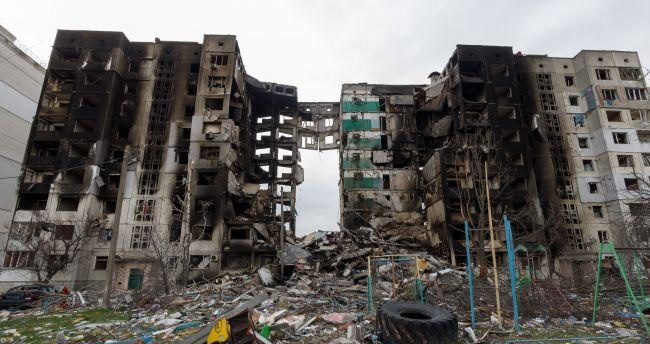
Most POWs and civilians were killed by gunshots to the head
During a UN Security Council (UNSC) meeting in New York, Serhiy Kyslytsya, Ukraine's Permanent Representative to the UN, cited the Commission’s report stating, “Family members, including children, were sometimes forced to watch perpetrators rape their loved ones.”
In addition, Ukraine’s envoy to the UN stated that the country’s nuclear power industry lost 44% of its capacity due to Russia's increased missile terror during the winter season.
“Russia’s "scorched earth" policy has led to the destruction of at least 59,000 residential buildings, 436 hospitals, and over 2,200 educational institutions,” Kyslytsya added.
Moreover, Russian attacks against Ukraine have resulted in the pollution of roughly 174,000 km², 30% of Ukraine’s territory, which is a significant blow to the world’s largest producer of agricultural products, UkrInform reported.
Kyslytsya also reminded that a year ago, Russian air bombs hit Mariupol’s Drama Theater, which was used as a shelter and was marked with a large inscription "Children."
"We still do not know the exact number of victims, and Russia has done everything possible to cover up its crime as soon as Mariupol was occupied," the Ukrainian UN representative noted.
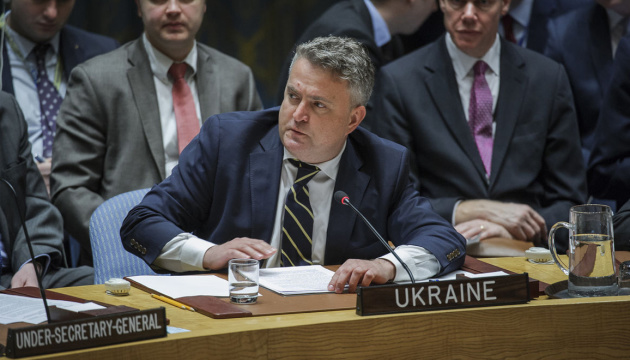
Genocide?
During a press conference in Geneva on the annual report of the International UN Commission, the chair Erik Møse announced that the investigation had identified potential perpetrators who committed atrocities in Ukraine. The list containing names of war criminals would be “submitted to the relevant authorities in this issue.”
Suspilne reported that in response to a question about the possible involvement of Russian political and military officials in war crimes committed in Ukraine, Møse clarified that the Commission was conducting a thorough investigation to determine the facts on the matter and collect evidence.
The UN report on murder, torture, and sexual abuse of Ukrainian civilians stated there was no direct evidence these acts were driven by genocidal intent or could be definitively classified as crimes against humanity, but that the matter does require further investigation, Euronews informed.
"We have not found that there has been a genocide within Ukraine," Møse clarified. "This said, we are, of course, following all kinds of evidence within this area, and we have noted that there are some aspects that may raise questions with respect to that crime (genocide). For instance, certain utterances in Russian media which are targeting groups."
“There were elements of planning and availability of resources which indicate that the Russian authorities may have committed torture as crimes against humanity,” the chief of the UN Commission added, AP reported.
Later, Yevheniya Kravchuk, the Deputy Chair of the Verkhovna Rada Committee on Humanitarian and Information Policy, cautioned the international community against blindly believing Russian propaganda denying genocide in Ukraine while the investigation is still ongoing.
According to the official, the Commission’s mission in Ukraine was to investigate war crimes rather than search for evidence of genocide. The identified cases would be the basis for further hearings before the world’s highest courts. Kravchuk added that Ukraine is also planning a separate investigation into the crimes of genocide that will require changes in the UN Commission.
“Ukrainian Army stands its ground while Russian military invades, ” Foreign Ministry says
The Commission noted that the Ukrainian Army was also responsible for a few indiscriminate attacks, including the torture of prisoners of war and the use of prohibited cluster munitions. However, it focused the vast majority of its report on allegations against Russia.
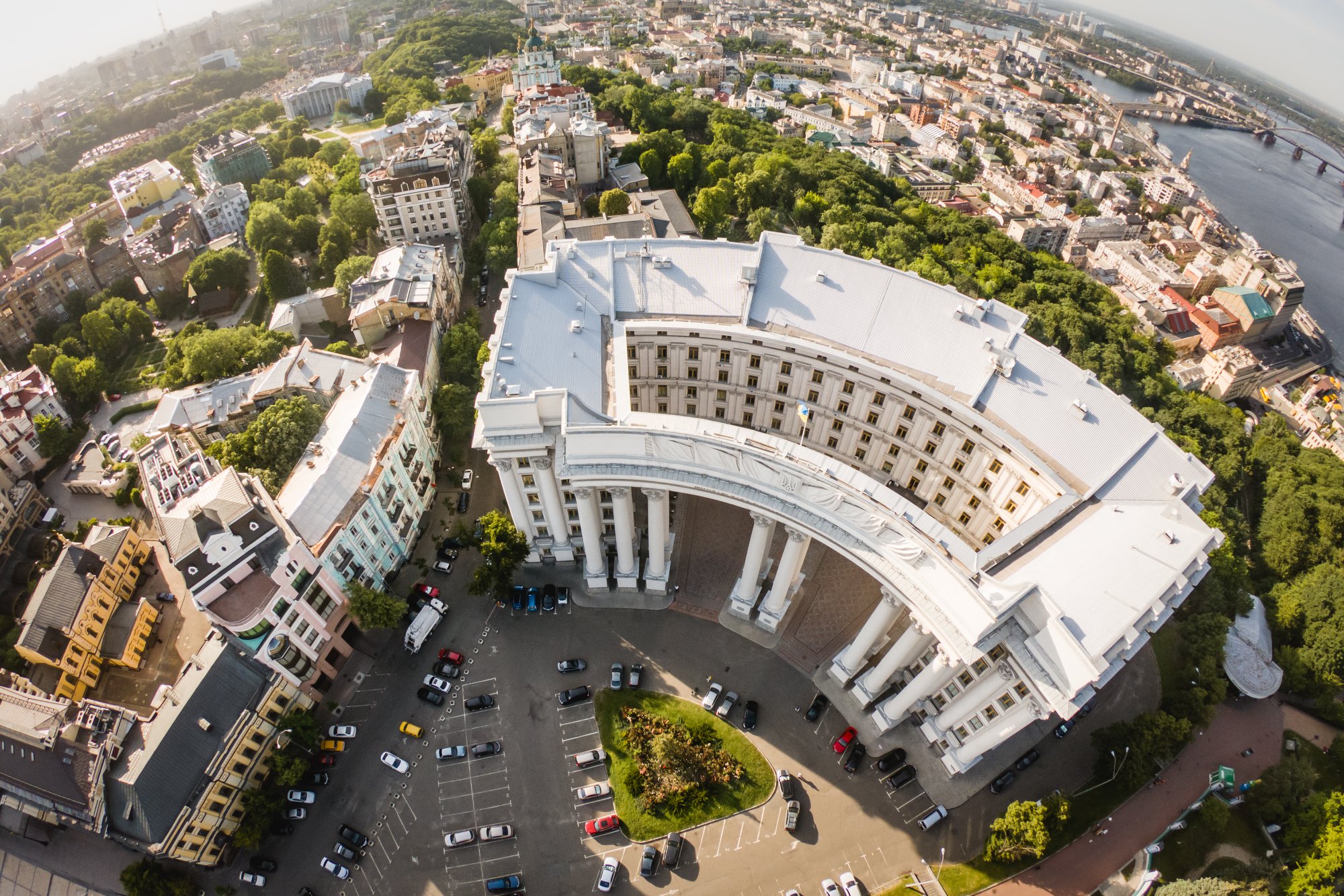
On 24 March, in response to the UN report, Ukraine's Ministry of Foreign Affairs stated that it would consider the Independent International Commission of Inquiry’s findings and recommendations on human rights protection in the country.
At the same time, the ministry strongly emphasized that it deems the shift of the responsibility for an attack to the victim of aggression as unacceptable.
“Ukraine has the right to defend itself,” it added in a statement.
According to Yuriy Belousov, the head of the Department for Combating Crimes in the Armed Conflict Conditions of the Office of the Prosecutor General (OPG), prosecutors in Ukraine have documented 71,147 military crimes committed by the Russian troops
UkrInform has reported that, as per Belousov’s statement, most war crimes have been committed by targeting civilian infrastructure with rockets and missiles. Today, Ukraine’s investigation teams use drones and 3D scanners to create models of destroyed residential buildings and hospitals to recreate Russian attacks and use evidence in international courts.
Related:
- Russo-Ukrainian War. Day 402: International Criminal Court calls on Russia to return abducted children to Ukraine
- Tribunal or restitution? Ukraine eyes ways to return one of its richest art collections looted by Russia
- ICC arrest warrant for Putin: what’s next, and do we still need a Tribunal? Human rights defender answers
- Ukraine’s President, German Vice Chancellor and Secretary General of the Council of Europe visited Yahidne village, where Russians committed war crimes
- If Putin comes to Germany, he will be arrested – German Justice Minister
- “I never cried, I just screamed in pain.” Survivors of Russian torture chambers speak

